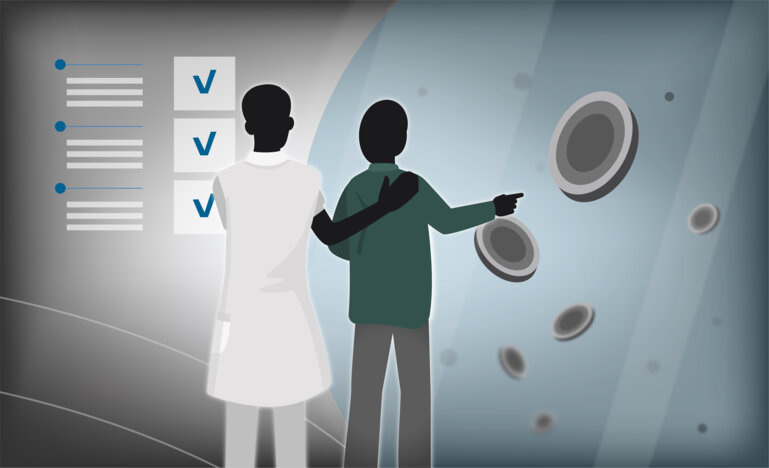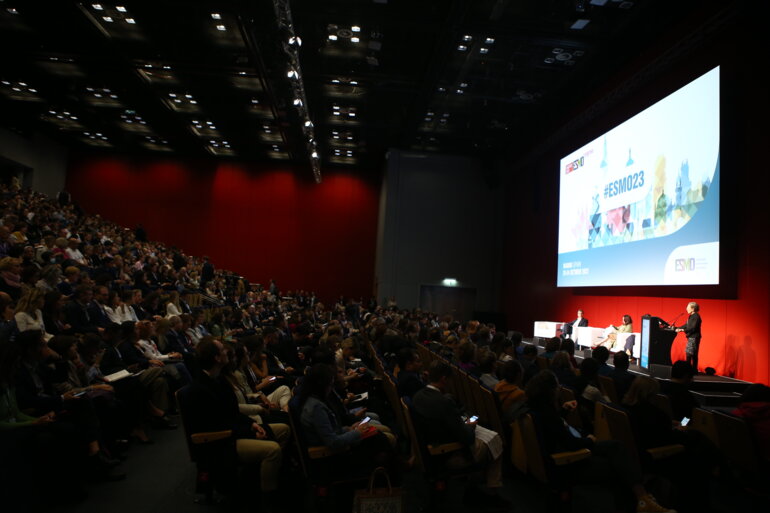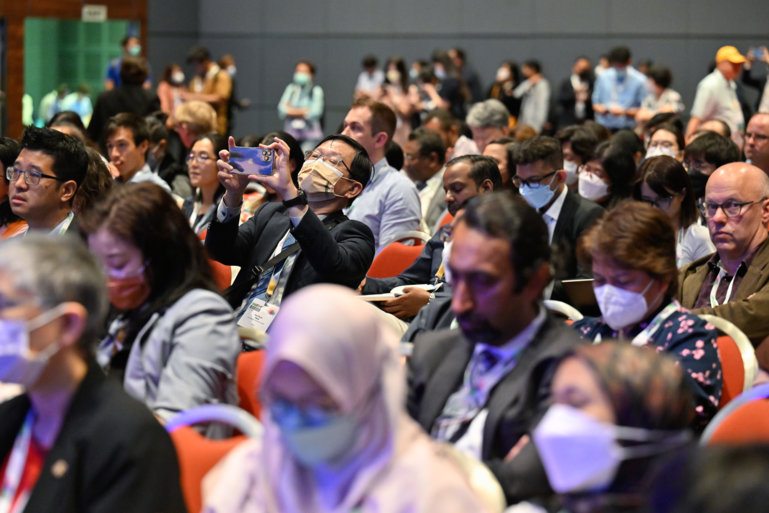Medical oncologists have traditionally played a marginal role in helping drive the adoption of preventive lifestyles, “but now it is time to strengthen our commitment” says ESMO President
Prevention has long been outside the scope of oncologists’ training and professional skills, but new knowledge about mechanisms of cancer causation coupled with concerns about the long-term sustainability of oncology care may call for greater involvement of oncology professionals in educating patients and the general public.
ESMO President Prof. Solange Peters, Centre Hospitalier Universitaire Vaudois (CHUV), Lausanne, Switzerland, believes that the natural credibility of disease specialists should be leveraged to increase the impact of prevention messages.
ESMO has taken a step into the field of cancer prevention by announcing a collaboration with the WHO’s International Agency for Research on Cancer (IARC). What is the added value of such an initiative during the Covid-19 pandemic?
The COVID-19 pandemic is making it difficult not just to give the topic of cancer prevention the visibility it deserves, but also to improve preventive practices at a time when global screening programmes have suffered widespread, sometimes persisting shutdowns, and delays in care continue to plague our health systems. ESMO’s collaboration with IARC, made all the more relevant in this context, builds on our shared commitment to understand the science-based risk factors of cancer and has resulted into an easy-to-access online resource centre that integrates everything healthcare professionals need to know about prevention. Resources available on the World Cancer Report Updates learning platform are suitable to the environment of oncologists and geared towards helping them refine or even develop the skills they need to convey prevention messages with as much accuracy and impact as possible.
What role should oncologists, who see patients once they already have cancer, play in this field?
We now know that preventive measures like quitting smoking, improving one’s diet or starting a physical exercise routine, even after a cancer has been diagnosed, can improve a patient’s quality of life, positively influence the outcome of the disease and prevent its recurrence.
Contrary to what many patients still believe, it is never too late to adopt a preventive lifestyle. This vital insight is something we neglected in the past and need to act on going forward.
Even when it comes to the general public, nothing sounds more reliable than information provided by the professionals who treat the disease. Our community has traditionally considered prevention to be mainly a topic for family doctors and organ specialists. Interestingly, when journalists want to talk about cancer prevention, they usually reach out to oncologists with their questions. As disease specialists, we must be able to provide competent answers based on a firm grasp of the latest numbers, survivor data and research findings.
What does the current research tell us about the potential impact of cancer prevention on public health?
Tobacco use, alcohol consumption, poor diet and obesity, physical inactivity, UV exposure, as well as occupational exposure to toxic substances are known to be involved in the development of many different cancer types. IARC estimates that up to half of global cancer cases could be prevented by eliminating key risk factors related to people’s lifestyles and environment. Importantly, these avoidable cancers include more than one in eight malignancies worldwide that are still related to infectious diseases like hepatitis, HPV and HIV (The Lancet. 2020 Feb 1;8(2):e180-e190), which themselves can be prevented by societal measures and vaccines. At the other end of the spectrum, we are discovering more and more benefits of physical activity, which does not just reduce overall cancer risk by contributing to weight control, but even has protective effects against several tumour types independently of its influence on body mass (World Cancer Report 2014). These are all highly actionable topics to tackle the risk of cancer upfront and which must be contrasted with the limited options available to us once we are dealing with a metastatic cancer.
What are the main challenges of engaging the general population with these topics?
The most important challenge is convincing people who are not sick at all, or even the population of patients we see, who have other worries, other concerns by the time we talk to them, to adopt preventive lifestyles. We still need to improve on phrasing our messages in a positive way, to avoid value judgements and make the benefits tangible for people so that they feel empowered to work actively with us rather than perceiving prevention as a restriction in their freedom or a punishment. This is all the more important because we need to reach young adults, and even teenagers with these messages about tobacco, alcohol, diet and infectious diseases.
With infectious diseases like HPV and hepatitis, another problem is that too many people remain more afraid of the vaccines than of the diseases that may be prevented by them. There needs to be a strong political push to explain that vaccines also protect against cancer, that they are an opportunity for all teenagers and adults who can still rely on prevention rather than trying to treat what continues to be a very deadly disease.
What can the medical oncology community do to increase awareness and acceptance of cancer prevention?
As the leading society for medical oncology in Europe, we cannot rely solely on external partnerships to drive this issue. Not only will prevention be more systematically integrated in the programmes of future ESMO meetings, it will also become a clear priority in the activities of the future International Cancer Foundation, which we are currently developing and through which we will be able to design targeted programmes to foster prevention across a large number of nations and cancers around the globe.
As medical oncologists, we, oncologists, must sound the alarm bell about the fact that our discipline, oncology, has reached a point where we are making many advances with treatments like immunotherapy, but we will not be able to deliver them to all patients if the case numbers continue to rise as they currently are. The incidence and prevalence of cancer combined with the epidemiology of an ageing population will make our tasks unsustainable over time, which means that the only way to avoid future disparities in access to care is to reduce the number of cancers and their severity when they are discovered through screening. The situation is not desperate, but it is urgent that the current trend be reversed.








